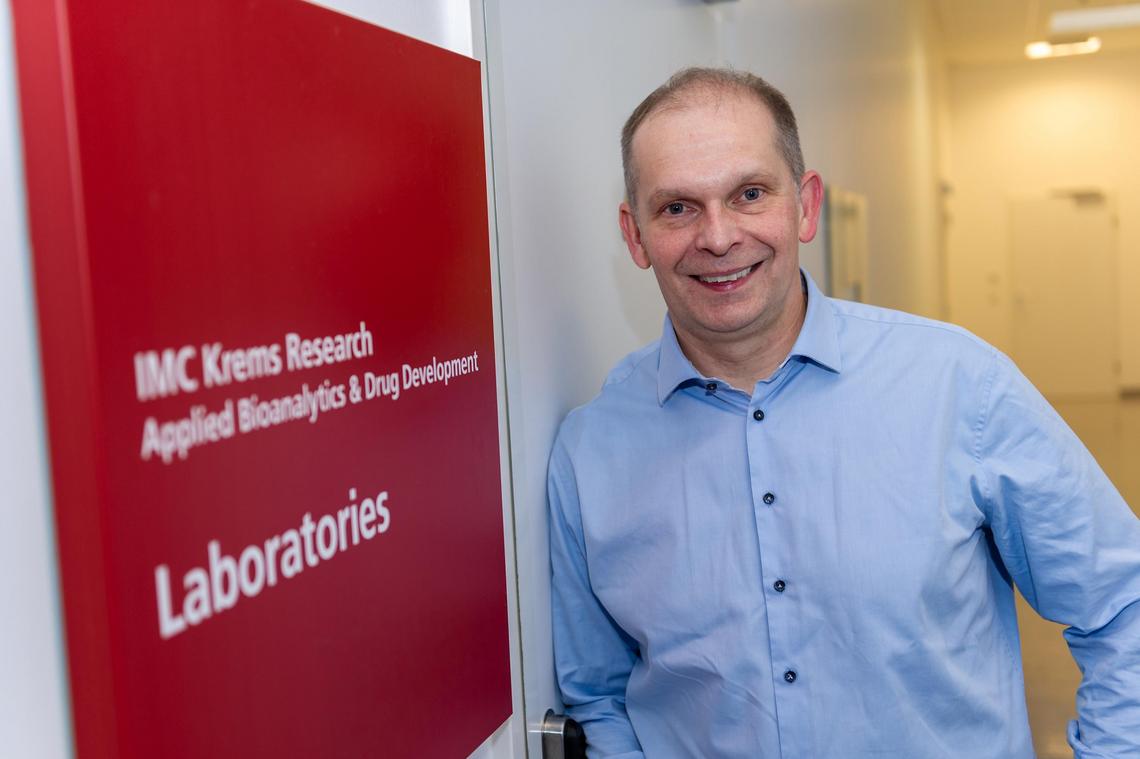Press
Research focus on vaccine development

Now under way at IMC Krems, the ImmunoProteomics research project will deploy proteomics – the analysis of all proteins in a cell or organism (the proteome) using mass spectrometry – specifically in order to develop biotherapeutics. Funding from the Austrian Research Promotion Agency (FFG) was vital for the establishment of the Biomedical Mass Spectrometry Laboratory at the Krems Bioanalytics (IKB) research institute.
Antigens in vaccine production
During the Covid-19 pandemic, vaccine production gained an exceptionally high profile both in the pharmaceutical industry and among the general public. Global initiatives were the key to combating the pandemic, and these were the driving force behind a concerted strategy involving science and industry. Above all, the selection of antigens is a core factor when it comes to developing a vaccine, alongside the type of vaccine and the delivery method.
"The main objective of the project is to establish an immunomedical proteomics platform at IMC Krems that will enable molecular characterisation of immune responses, which in turn will provide the basis for safe and effective vaccines and treatments. Analysing antigen-antibody interaction using mass spectrometry could potentially revolutionise the selection and industrial production of antibodies for the development of pharmaceuticals", Franz Herzog, Endowed Professor, Head Mass Spectrometry, Institute Krems Bioanalytics
Institute Krems Bioanalytics
Thanks to the new mass spectrometer, IKB is aiming to significantly expand its research focus on the immunogenicity of biotherapeutics. This will also considerably enhance the options available for practice-driven teaching at IMC Krems. The technology platform established in the course of the ImmunoProteomics project will support the long-term development of a new line of expertise in Austria, with immunology, immunogenicity and vaccine development serving as the focal points for integration. The combination of mass spectrometry and antibody-based technologies is a particularly strong USP that will pave the way for numerous national and international partnerships with pharmaceutical companies.
Huge potential: mass spectrometry
Mass spectrometry can be used to determine which protein cleavage products of a pathogen, tumour cell or biotherapeutic trigger an immune response. This enables the identification of essential antigens for immunotherapy development, as well as significantly improving the classification of cancers by pinpointing the corresponding biomarkers. Another mass spectrometry approach for biomarker identification, plasma proteomics is being implemented by means of in-depth proteomic analysis of blood plasma, which is a rich reservoir of biomarkers as a result of secretion from tissue.
In contrast to the standard methods for pharmaceutically produced antibodies, this research project aims to pioneer mass spectrometry approaches as a means of analysing antibodies that occur naturally in the body, which will be taken from blood samples. Characterisation of a specific patient’s antibody spectrum has a range of applications, from forming the basis for tailored therapies to approaches that extend into the field of personalised medicine.
